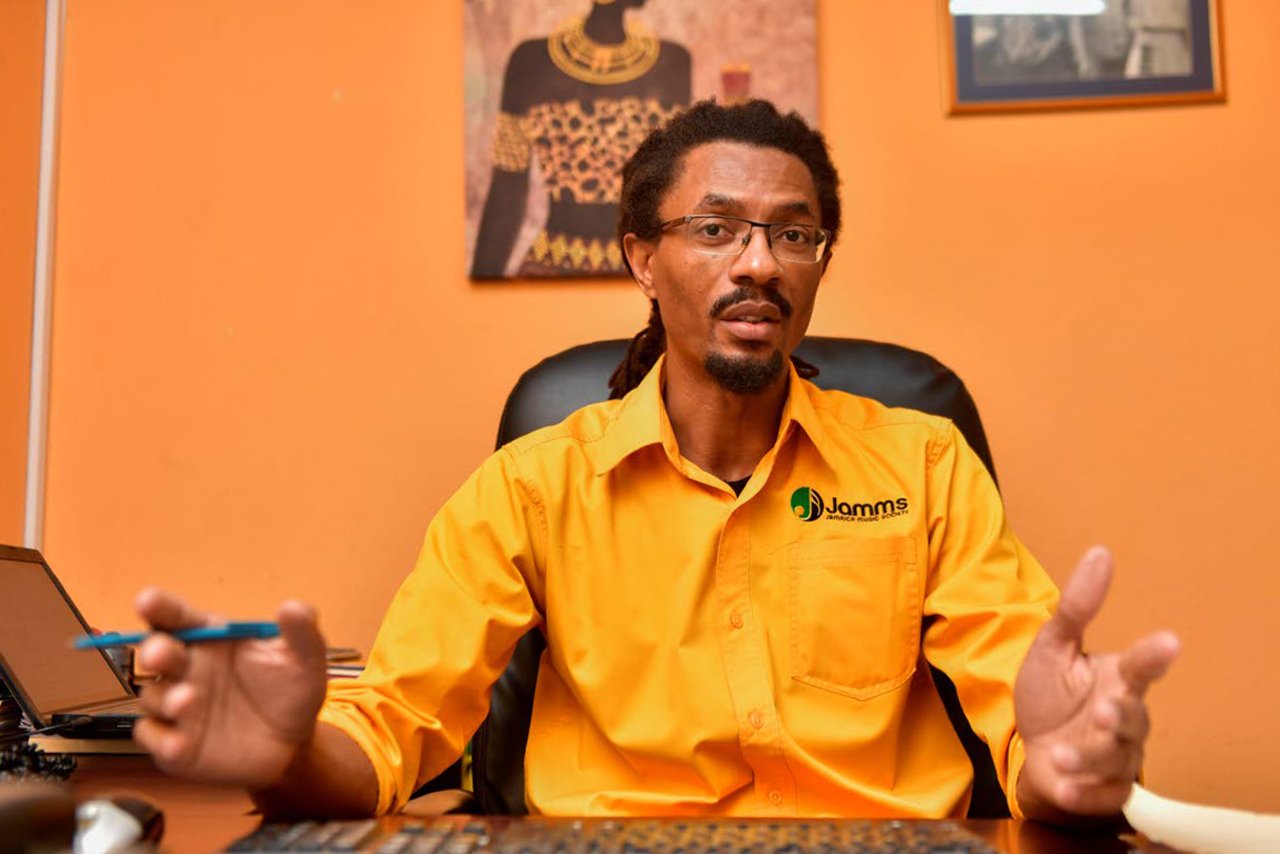JAMMS Sees Huge Surge In Membership, As Royalties Stream In From PPL Deal

The Jamaica Music Society (JAMMS) membership, has reported a significant jump in new membership, particularly since the organization forged stronger ties late last year with UK-based Performance Rights Organization Phonographic Performance Limited (PPL), to collect royalties wherever Jamaican recorded music is played internationally.
The jump in membership comes in tandem with an increased amount of royalty payments collected from around the world, including far-flung countries in Eastern Europe and Asia, are beginning begin to stream into the pockets of Jamaican artistes, producers and players of instruments, a direct result of the JAMMS-PPL partnership.
“We are talking about places like France, Canada, from places like Belgium, South Korea, Estonia, Poland. These are now places we are seeing more royalties coming in from for our artistes,” General Manager of JAMMS Evon Mullings said.

“Certainly what we are looking at is scaling up our intake of international income from about 10 percent of our overall income to about 40, 50 percent over the next three years. That is how huge it is going to be in terms of royalties coming in for our producers and our artistes,” the executive added.
Mullings told Television Jamaica’s entertainment journalist Anthony Miller during an interview for The Entertainment Report, that artistes and producers of all levels have been signing up with JAMMS, for which there is no membership fee.
“Currently we are over 1,400 performers and producers. That is significant that we are going from less than a hundred to now scaling up to over 1,400. This runs the gamut from the person who is just an aspiring artiste or producer, to the very well established, major name in the business,” he said.
Artists such as Vershon, Shenseea, Jahmiel, Chronic Law, TeeJay, Moyann, Chronic Law, Nadine Sutherland, and Duane Stephenson are among some of the younger artists who are JAMMS members.
Nevertheless, Mullings said the royalties being collected amount to just a drop in the bucket, as thousands more artists are possibly missing out, as they have not yet become members of JAMMS.
“There could be literally be four to 5000 artistes who are currently unrepresented – producers significantly less, because we are already covering the vast majority of producers. So maybe a few hundred producers who are not yet (members). And those would be the lower tier producers who are probably just coming into the marketplace,” Mullings told Miller.
“We are already covering the well-established producers and so forth. So the market is really wide open for artistes and musicians who are unrepresented to be part of a structured a system like this,” he added.
The expanded partnership between JAMMS and the PPL took effect in late 2020. Both JAMMS and PPL collect revenues for the use of recorded music on radio, television as well as in public places, such as restaurants, clubs, bars, retail stores, hotels, and other venues. Each organization does this in their own country, as well as overseas, through a network of international agreements.
The expertise of the JAMMS team in regard to local repertoire has been described by the PPL as helping to fuel the effectiveness of the partnership through international royalty claims which are driven by accurate repertoire information.
JAMMS has in the past brokered reciprocal agreements with foreign collecting societies in various territories, including Holland, Germany and France, but historically scores of Jamaican artistes have been known to unwittingly miss out on royalties.
In August 2012, Washington-based collection agency Sound Exchange, released a list of artistes and labels it says were owed millions of dollars in unclaimed digital performance royalties, among them Aaron Silk, G Mafia, G-Whizz, Galaxy P, Garnet Silk, Natty King, Natural Black, Natty Remo, Natural Vibrations and Tanya Stephens.
At the time the organization said royalties were up to three or more years old and range from US$10 to US$100,000, according to a Jamaica Observer article titled Millions Owed!
Sound Exchange had also warned that copyright holders should register their claims by October 15 of that year or they could find themselves missing out on their unclaimed royalties.
“SoundExchange is releasing this list in hopes of getting artistes and copyright holders to claim their digital performance royalties. We want to get the money out of our bank account and into theirs, plain and simple…Sound Exchange is authorised by law to release older unclaimed royalties to offset our costs and distribute proportionally to those we already pay. We have repeatedly held off on doing this,” the Washington-based company had said.
